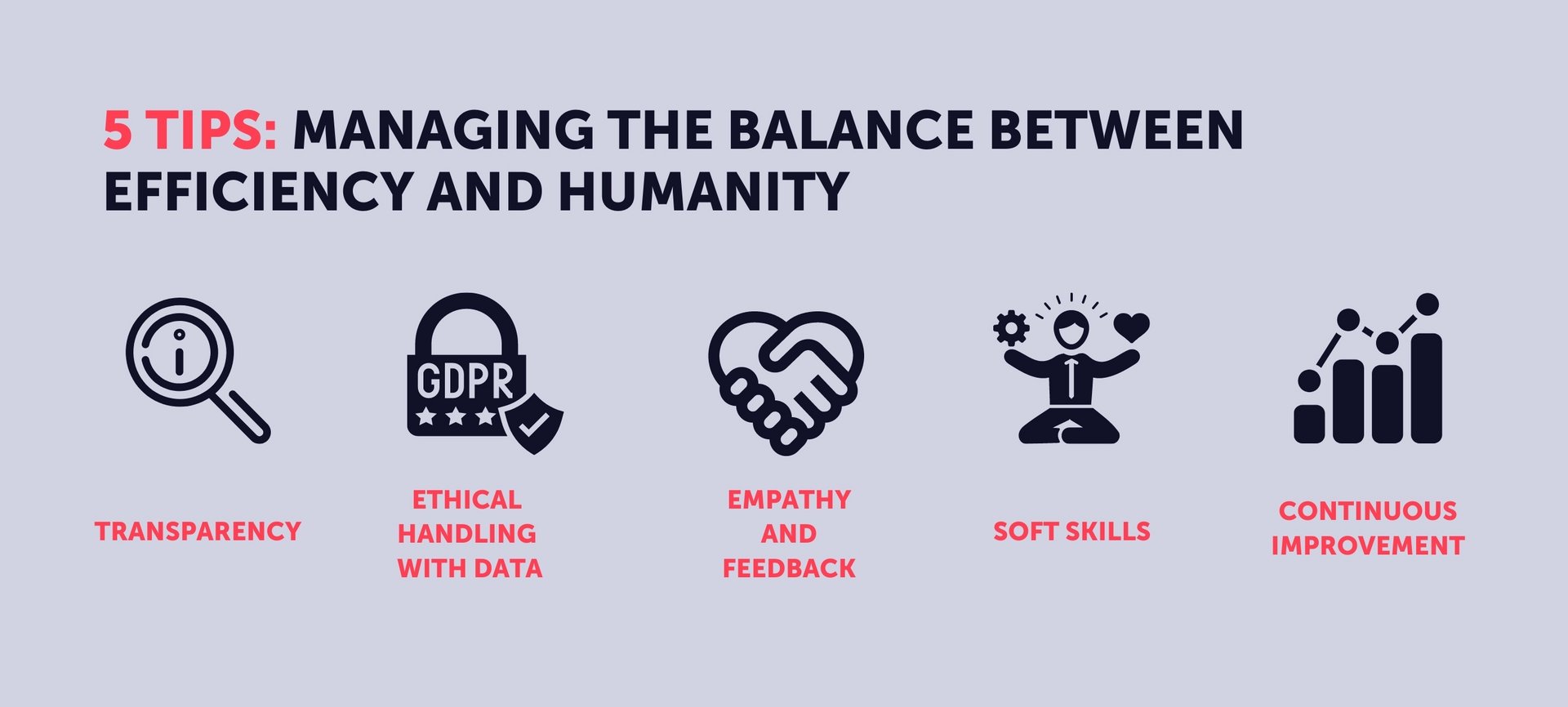Understanding the efficiency of ChatGPT
The efficiency of ChatGPT can be illustrated by several factors.
One of these aspects is the impressive speed with which ChatGPT can process large amounts of data - such as resumes or other documents. This fast processing makes it possible to significantly shorten work time spans, as information can be quickly searched and analyzed.
Another advantage lies in the data-driven insights that ChatGPT delivers. ChatGPT, as mentioned earlier, can analyze resumes and then extract and provide relevant information for the selection process. These insights provide recruiters with a solid foundation for objective decision making in the hiring process.
In addition to accelerated processing and data-driven insights, ChatGPT also offers cost-effectiveness. Automating certain tasks in the recruiting process - such as writing answers to recurring questions or creating handbooks for new hires with info about internal processes, company culture and company - enables efficient use of resources and helps reduce overall spend in the hiring process.
For all the benefits that ChatGPT delivers, companies should also be aware of the risks and side effects that AI brings to recruiting - such as the problem of a missing human touch.
The dehumanization dilemma
The challenge of dehumanization through automation in recruiting is particularly significant because the core is based on human relationships and skills as well as individual career dreams.
This dilemma also occurs through several aspects of using ChatGPT in recruiting processes.
One of them is the potential loss of the personal touch. The automation of initial interactions through ChatGPT can make the connection created between the candidates and the organization seem less personal.
Another problem lies in the misinterpretation of soft skills. ChatGPT's algorithms are powerful, but they cannot capture human qualities such as empathy, creativity, and emotional intelligence. This could lead to an incomplete assessment of the applicant's skills and aptitude.
In addition to these challenges, the use of AI to handle personal data also raises privacy and ethical issues. The processing of sensitive information by ChatGPT requires careful consideration to ensure that privacy policies are followed and ethical standards are maintained.
This tension between increasing efficiency and privacy and ethics concerns is a central element of the dehumanization dilemma in the context of ChatGPT.
Finding the balance

To successfully navigate this fine line between the benefits of ChatGPT and the dangers of the impersonal, companies must take a balanced approach that leverages the strengths of technology without neglecting the human side of recruiting. Here are some practical tips that can help companies meet this challenge:
- Transparency: Make sure candidates understand when and how ChatGPT is used in the recruiting process. Open communication builds trust and shows that the company respects the human aspect.
- Ethical data handling: You should inform in general about how the applicants' data is used. Especially in the context of ChatGPT it is even more important to communicate the data processing in a transparent and responsible way to gain the trust of the applicants.
- Empathy and feedback: Everyone has experienced the standard rejection sent quickly. Give candidates honest feedback, even if they are not selected, and express empathy and appreciation for their time.
- Soft Skills: Use ChatGPT to look for technical skills, but rather rely on the human judgment of your colleagues to assess soft skills and people skills. This human intuition is often critical to a holistic assessment.
- Continuous Improvement: In addition to collecting external feedback from candidates about their experience, encourage internal feedback and sharing within the team. By fostering a culture of learning and open communication within the team, you can ensure that the use of ChatGPT in recruiting becomes more and more aligned with the needs of candidates and the company.
As a company, it is crucial to leverage the efficiency of ChatGPT, but it is equally important to keep the human touch. This is the only way to ensure an authentic and professional application process.




![[Translate to English:] [Translate to English:] Chat GPT Bewerbungsprozess](/fileadmin/user_upload/02_blog___news/schulmeister-chat-gpt-pexels-airam-datoon-15940006.jpg)